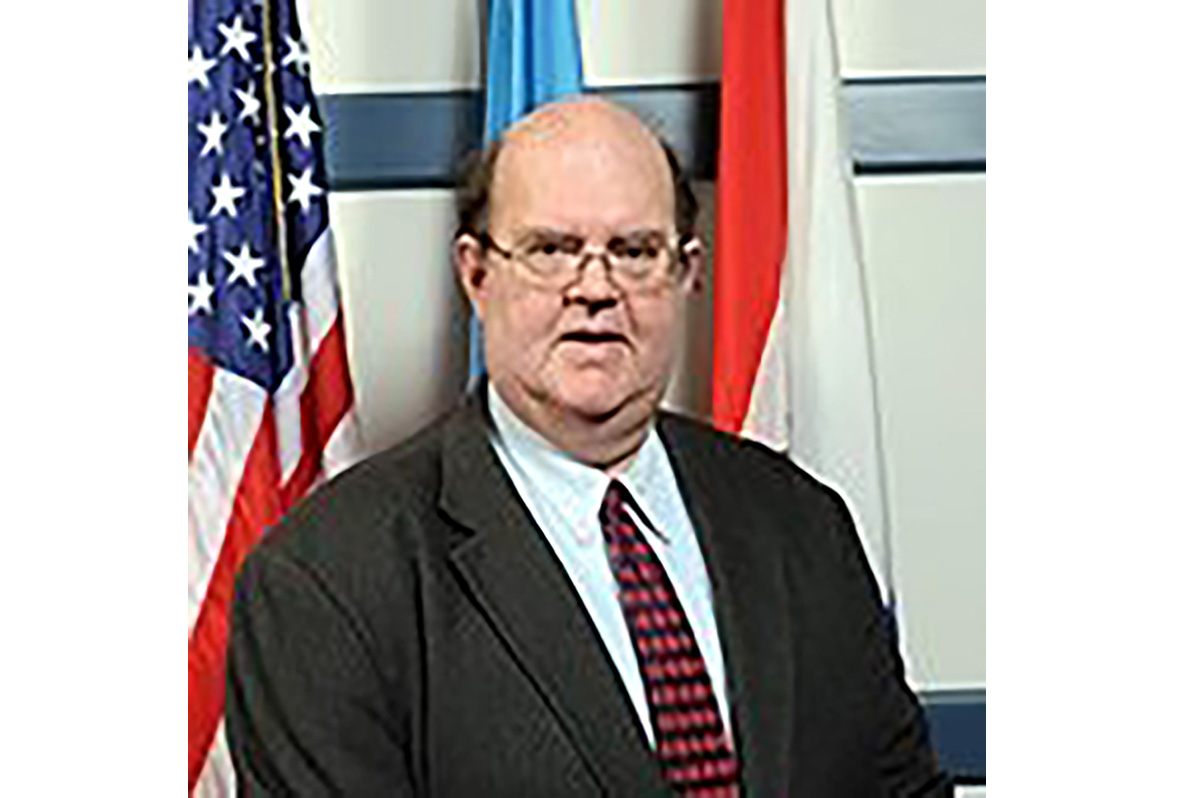Delaware
Sarah McBride seeks reelection to Delaware Senate
Incumbent renews commitment to reforming healthcare, education

Sarah McBride, who currently represents Delaware’s 1st State Senate District, is seeking reelection this fall as her first term comes to a close. McBride made headlines in 2020 when she became the first openly transgender state senator in the nation’s history, and for the past two years has worked to reform social services and on healthcare legislation in the Delaware Senate.
When seeking election for the first time in 2020, McBride campaigned on a platform of paid family and medical leave for working Delawareans. Two years later, McBride told the Blade that developing these policies – and, more specifically, passing the Healthy Delaware Families Act earlier this year – has been the highlight of her time in the General Assembly.
As a sponsor of the bill, McBride wanted to “help lead the effort to pass paid family and medical leave” in Delaware, and spearheaded the creation of a statewide program that enabled employees to receive up to 12 weeks of paid leave for various personal, medical, and family events.
“A lot of observers laughed at the possibility of Delaware passing paid leave,” McBride recalled, “but we were able to work together to build a coalition … [and pass] the largest expansion of the social safety net in modern Delaware history.”
McBride also pointed to the General Assembly’s passage of a $15 minimum wage, protection over statewide reproductive healthcare, and creation of “the most significant gun safety package in state history” as successes of her first term. “There’s still so much more that we need to do,” she emphasized.
More recently, The Digital Citizenship Education Act – a youth media literacy campaign McBride sponsored – was signed into law by Gov. John Carney on Aug. 29. McBride noted that her work on the bill was linked to her experiences being sworn into the Delaware Senate on the heels of the Jan. 6 insurrection in the U.S. Capitol.
“In the days and weeks after the insurrection, some of my colleagues and I began having conversations about what more Delaware needed to do to heal our nation,” McBride said. “One of the ideas that my colleagues and I had was to introduce The Digital Citizenship Act to provide young people with the tools necessary to identify fact from fiction, hard reporting from opinion, and news from advertisements online.”
The bill will require the Department of Education to uphold standards of evidence-based media literacy in public and charter school classrooms across the state.
“We think of young people as digital natives who are able to seamlessly navigate the internet with an effortlessness that eludes many adults, but the reality is that young people, like all people, struggle with this increasingly complicated world and identifying what is true,” she added.
McBride is seated in a firmly blue district, but this year’s election still comes with intrigue: the state has recently redrawn its legislative districts, meaning this year McBride will be campaigning to roughly a third of her voters for the very first time.
“I’m talking and reaching those new-to-the-first-Senate-district voters to make sure that they understand that this change is occurring, and that to ensure that they have information,” she noted. “Making sure that we’re reaching those newer voters in this district is going to be critical over the next few months.”
On Aug. 23, LGBTQ Victory Fund, an organization that advocates for the election of LGBTQ leaders in public offices across the country, endorsed McBride for the 2022 election. The District 1 general election is slated to be held Nov. 8, and McBride currently does not face opposition from a Republican nominee.
Reflecting on her time serving Delaware and her plans yet to come, McBride emphasized her responsibility to work against efforts from “far right-wing politicians and judges to roll back the clock on our progress and rescind critical rights for many, many people in this country.”
Further, McBride noted that, through reelection, she hopes to continue developing and expanding protections that promote the wellbeing of residents throughout the First State.
“I think more than anything else, seeing what people deem to be impossible not just become possible, but a reality here in Delaware has only motivated me to seek reelection and fight even harder for the remaining issues that Delaware needs to address,” McBride said. “I am ending my first term even more hopeful than when I began it.
Voter registration for the general election is open now through Election Day. To find out how to register, visit the state’s Department of Elections website.
Delaware
Delaware’s first openly gay elected official dies at 66
John Brady remembered as dedicated public servant

John Brady, the first openly gay elected official in Delaware, passed away in his home on Aug. 10 at age 66 after battling a long illness.
Brady was a deputy attorney general and was elected to three Sussex County offices: register in chancery, recorder of deeds, and clerk of the peace.
While clerk of the peace, Brady performed the first legal same-sex marriages in the state starting in July 2013. He told a local radio station just last week that he performed more than 400 marriages in his four-year term.
“John married my husband and me on the beach in Rehoboth 11 years ago,” said Washington Blade editor Kevin Naff. “He took great time and care in crafting our nuptials. It was a beautiful moment we will never forget. John was a pioneer for the LGBTQ community in Delaware, a dedicated public servant, and a gentleman. He will be missed.”
The day before he passed away on Aug. 9, former Speaker of the House Pete Schwartzkopf and former Lt. Gov. Bethany Hall-Long presented Brady with Delaware’s highest civilian honor for individuals who meet a high standard for community service, the Order of the First State.
Brady retired in 2024 after 32 years as a member of the Delaware Bar and 16 as a state employee. He was also active in the Eagle Scouts, working as a Scout leader and professional scouter. He received the Founder’s Award in 2023, one of the highest honors.
“Delaware mourns the passing of John Brady, a true public servant, trailblazer, and dear friend to many,” Gov. Matt Meyer wrote in a statement on Aug 11. “From his dedication to justice and service through the law to the barriers he broke as Delaware’s first openly gay elected official, John fought with compassion to improve our state and touched countless lives in the process. Lauren’s and my prayers are with John’s family and friends, as we all mourn his passing and celebrate his extraordinary life.”
Delaware
Del. att’y gen’l among plaintiffs suing Trump over access to care for trans youth
Coalition of states filed motion last week

A coalition of more than a dozen states, including Delaware, filed a lawsuit on Aug. 1 to block the Trump administration’s efforts to restrict access to medically necessary care for transgender youth.
Filed in federal court in Massachusetts, the lawsuit challenges Executive Order 14187 from January, in which President Donald Trump refers to gender-affirming care such as puberty blockers, hormone therapy, and surgeries as “mutilation.” It declares that the policy of the United States will be to “not fund, sponsor, promote, assist, or support the so-called ‘transition’ of a child from one sex to another, and it will rigorously enforce all laws that prohibit or limit these destructive and life-altering procedures.”
The suit argues that the EO violates the Administrative Procedure Act (APA) and the Tenth Amendment by asserting federal overreach into state-regulated medical and healthcare decisions.
“It becomes clearer every day that there simply is no bottom to this administration’s cruelty,” said Attorney General Kathy Jennings in a press release. “With his agenda failing and his popularity plummeting, the president is turning to time-tested tactics of demagogues: turning vulnerable people into scapegoats, obsessing over their private lives, and intruding on medical decisions. These stunts make kids into political props and do nothing to help Americans. They are despicable, dangerous, and illegal.”
Gov. Matt Meyer recently signed an executive order making Delaware a shield state for providers of gender-affirming care. It prohibits state agencies from cooperating with investigations, subpoenas, or legal actions by other states against individuals or providers involved in care that is legal in Delaware.
According to the press release, providers in some states have begun to reduce or eliminate services due to federal actions. Nemours Children’s Hospital in Delaware is no longer providing gender-affirming care to new patients.
Medical experts and nearly every major national medical association endorses and supports the availability of gender-affirming care for transgender young people.
“Empirical evidence has demonstrated that trans and nonbinary gender identities are normal variations of human identity and expression,” the American Medical Association said in 2021.
Plaintiffs include the attorneys general of California, Connecticut, D.C., Hawaii, Illinois, Maine, Massachusetts, Maryland, Michigan, Nevada, New Jersey, New Mexico, New York, Rhode Island, and Wisconsin, and the governor of Pennsylvania.
Delaware
Intersex actor, advocate River Gallo attending screening event in Delaware
Afternoon includes screening of ‘Every Body’ and Q&A

Intersex actor and advocate River Gallo will attend a screening of their film “Every Body,” followed by a Q&A in Wilmington, Del. this Saturday.
River Gallo is a Salvadoran-American filmmaker, actor, writer, model, and intersex rights activist from New Jersey. They wrote, directed and starred in the 2024 film “Ponyboi,” the first film to feature an openly intersex actor playing an intersex person. Intersex refers to individuals who are born with reproductive or sexual anatomy that doesn’t fit the typical definitions of male or female.
The movie that will be shown at Theatre N in Wilmington on July 26 at 4 p.m., “Every Body,” documents the lives of three intersex people, including Gallo. Following the film, Gallo will engage in a Q&A to discuss their life as the child of immigrant parents, activism, and film career. The event is hosted by Orgullo Delaware and the Delaware Sexuality and Gender Collective. ACLU Delaware and InterAct are partners in the event.
Noah Duckett co-founded Orgullo Delaware in 2019 with his mom, Julissa Coriano, to provide resources for Latino LGBTQ Delawareans and their families.
Duckett said that a lot of times, intersex people are left out of conversations surrounding the LGBTQ community. He hopes to pack the house for this event and emphasize how special it is that Gallo will be there in-person to connect with the audience about their work.
“I’m really hoping that people will be able to gain more of an understanding of what it must be like to navigate the world as an intersex person,” he said.
Mike Brickner, executive director of the ACLU of Delaware, seconded that the intersex community typically does not get as much spotlight within the LGBTQ umbrella.
“I hope that there are members of the intersex community that do come, that they also feel seen and acknowledged,” he said. “There’s often so few spaces for people to talk about that community and to really share about their experiences, so I do hope that visibility brings some level of comfort to folks.”
InterAct is an organization dedicated to the rights of intersex youth. It was initially founded with the goal of bringing legal action against the practice of non-consensual surgeries on intersex infants, according to Maddie Moran, the director of communications.
Moran said intersex people have historically been victimized and targeted by the government, by medical institutions, and by legal institutions. They said the average politician can’t even define intersex.
“Many of the average people in society don’t know that intersex people exist, and don’t understand that sex is not as strict as an XX and XY binary. It’s so much more than that,” they said.
Moran said they came out publicly as intersex before working with InterAct, but suddenly didn’t feel so alone after joining. They said that visibility is more critical now than ever and Gallo is just one of the people stepping up to be that visibility in the intersex movement.
“To intersex young people out there, you’re really not alone,” Moran said. “There are so many people who share your experiences, who share similar stories to yours, and regardless of what you’ve been told, there are many, many people out there like you.”
Brickner has come to the conclusion that the only way to get through the country’s current moment is through real and authentic solidarity.
“We have to acknowledge other people’s identities,” he said. “We have to have events like this that acculturate people to those identities, and that’s how we really create understanding and true, authentic solidarity with our broader community, is if people understand one another and see their lived experiences.”
-

 India5 days ago
India5 days agoActivists push for better counting of transgender Indians in 2026 Census
-

 Advice5 days ago
Advice5 days agoDry January has isolated me from my friends
-

 District of Columbia4 days ago
District of Columbia4 days agoCapital Pride reveals 2026 theme
-

 National4 days ago
National4 days agoAfter layoffs at Advocate, parent company acquires ‘Them’ from Conde Nast


















